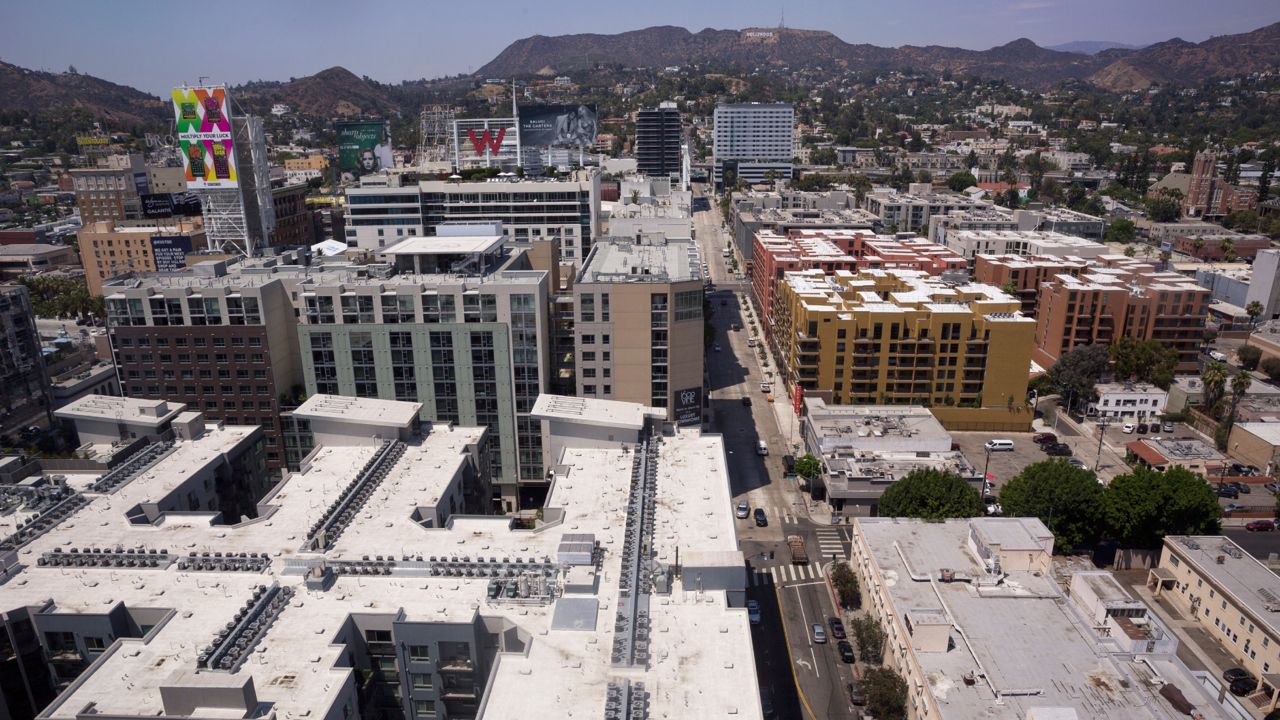LOS ANGELES — The City Council Tuesday is expected to vote on a proposal meant to limit anticipated rent increases for properties that are subject to the city's rent-control law.
The proposal was previously delayed during last week's council meeting by Councilman Hugo Soto-Martinez, who wanted more time for his colleagues to consider the idea. The proposal was prompted by the pending Jan. 31, 2024, end of a pandemic-era rent freeze placed on rent-stabilized units.
The city's Rent Stabilization Ordinance was adopted in 1979 and applies to rental housing built before 1978. It limits the allowable increase for rent-controlled units, tying rent increases to the consumer price index, a measure of inflation.
On Nov. 1, the council's five-member Housing and Homeless Committee voted 3-2 to approve a revised proposal aimed at limiting rent hikes following expiration of the rent freeze. Council members Monica Rodriguez and John Lee voted against it.
Councilman Bob Blumenfield amended a motion Soto-Martinez introduced on Oct. 25 that sought to extend the freeze on rent-controlled units. Rather than extend the rent freeze, the Blumenfield amendment requested that the city attorney, with the assistance of the Housing Department, draft an ordinance that would temporarily set rent increases for rent-controlled units from Feb. 1 to June 30, 2024.
What will be before the council Tuesday will be a compromise of sorts — a plan to allow up to a 4% rent increase, or up to 6% if landlords cover gas and electrical costs, for rent-stabilized units.
The rent hikes would be calculated using a formula outlined in the city's rent control law, using the consumer price index from October 2022 to September 2023 instead of from October 2021 to September 2022.
According to Blumenfield, by using the most recent consumer price index, the formula would allow a rent increase of 4% instead of what would have been a 7% increase.
"So, it would not allow for a rent freeze because legally we can't do that, and the Supreme Court has said that our COVID-19 powers are over," Blumenfield said. "But it would not allow us to jump to 7%, which is based on the data."
The amended motion would also instruct the Housing Department in consultation with the United to House LA Citizens Oversight Committee to develop programs assisting landlords and tenants, as well as for small housing providers for the maintenance and preservation of RSO units.
Soto-Martinez's proposal to extend the rent freeze was intended to provide more time so a study reviewing the city law's formula for determining rent hikes could be completed, and help determine what adjustments to the formula may be needed.
Blumenfield said the study will not be completed in time to make adjustments before the rent freeze ends.
Several tenants and landlords have expressed their support for either extending or terminating the rent freeze.
Casper Martin, speaking on behalf of his parents who own a rent-controlled, six-unit apartment in the Pico-Robertson area, previously told the Housing and Homeless Committee that his parents love being landlords. While his parents rent out units below the market rate, they can't continue doing so without being able to raise the rent at least a little.
Other landlords who spoke against extending the rent freeze also cited financial concerns.
Renters like Amelia Kreski, a 10th District resident and member of the Alliance of Californians for Community Empowerment, urged the council to extend the freeze or limit any rent hikes.
Kreski, 70, said she lives off her husband's pension and it will not be enough to cover a rent increase. She said many Angelenos like herself cannot afford higher rent.
Housing advocates and renters emphasized that any rent increases could lead to a rise in homelessness.
The Los Angeles County Board of Supervisors last week took similar action, extending but slightly increasing a cap on rent increases allowed for rent-controlled apartments in unincorporated areas. The board last year imposed a 3% cap on rent increases, but that cap was set to expire at the end of the year. The board voted to extend the cap until June 30, 2024, but agreed to increase the allowable rent increase to 4%.



